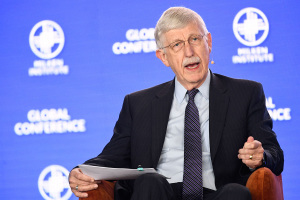Why Voters in Seven States Should Choose Their Children Over Gambling

In just over a week, the voices of voters around the nation will be heard on a variety of issues and on a sprawling slate of candidates. Voters in seven states will encounter gambling proposals on their ballots: Colorado, Massachusetts, California, South Dakota, Nebraska, Tennessee, and Kansas. The proposals take different approaches - in some states, additional lotteries are proposed, in others, gambling at racetracks, and in still others, the erecting of casinos or slot machines.
On each of these proposals, concerned voters should reject the expansion of gambling. While many contend that gambling is an economic boon for a state and that it increases tax revenue - sometimes even supposedly benefitting local school districts - there are much darker issues at play.
The social cost of gambling is simply too high to pay. And it's not one that voters need to bring into their communities, their neighborhoods, or their families.
The California Research Bureau reports:
"Problem and pathological gambling may be an invisible or silent disease but it is not a costless disease. ... Social costs includes such items as fraud, theft, bad loans, bad checks, lost work time, unemployment and welfare benefits, insured or publicly supported medical costs, and criminal justice system costs. Those types of social costs are easier to quantify than other types of social costs that result from gambling such as increased rates of suicide, car accidents, and incidence of child abuse. Another study says that social costs should include lost productivity of spouses, impaired judgment and efficiency on the job, divorces, added administrative costs for unemployed, and the costs of depression and physical illness related to the stress and lower quality of family life."
Not exactly worth increased tax revenue, is it? And perhaps it's time for voters to consider that the safety of children, a secure home life, and the absence of increased crime and gang activity is worth more than flinging a few extra dollars at the local school districts.
Oh - and about all those claims of economic increases? Earl L. Grinols, an Illinois economist who wrote Gambling in America: Costs and Benefits, has this potent illustration to offer, for where there is gambling, there are always gambling addicts:
"The costs of problem and pathological gambling are comparable to the value of the lost output of an additional recession in the economy every four years."
An Illinois News Bureau article reports Grinols as further writing that "the social costs of gambling, such as increased crime, lost work time, bankruptcies and financial hardships faced by the families of gambling addicts, have reached epidemic proportions, costing the economy as much as $54 billion annually."
Is it going too far to call gambling revenue blood money?
Victims of human trafficking and sex slavery would hardly think so. Online Casino Elite (OCE) attempted to educate casino goers about the prevalence of human trafficking by quoting Dr. Celia Williamson, a University of Toledo professor. She said, "Casinos...bring men...with lots of money in their pocket...who are wanting to have a good time." OCE went on:
"The 'demand' for sexual services can be greater at casinos, sporting events, and conventions, says Williamson. The pimps who 'sell' these services seek out certain situations in order to make a profit. According to the professor, it is all a matter of 'supply and demand.'"
And indeed, Las Vegas, the gambling capital of the U.S., could be considered "ground zero for sex trafficking," including the trafficking and sexual exploitation of children. Lt. Karen Hughes, from the Las Vegas Metro Police, says:
"You often hear people refer to prostitution as the oldest profession in the world...I don't believe it's a profession. It's an exploitation."
Shared Hope International, in a 2012 report, revealed that "at least 100,000 children in the United States are exploited through prostitution" each year. WomensLaw.org reports "[t]he average age for girls entering prostitution is between 12-13. And studies show that 75 to 95 percent of all prostitutes were sexually abused as children."
Casino Watch, an organization "exposing the dark side of gambling" has a long collection of quotes from news reports about connections between gambling and prostitution. A Canadian article revealed:
"Newspaper advertisements for escort services -- many of which are run by gangs -- tripled during the casino's first year of operation. In the words of Windsor's former police chief, the casino is 'a breeding ground for prostitution.'"
An article about Atlantic City further spelled out the connection between gambling, prostitution, and gang activity:
"State Police also said the investigation determined that members of the…street gang were running prostitutes in casinos and on the streets surrounding them."
On the streets surrounding them.
Voters need to realize that a vote to expand gambling is an invitation allowing gangs, prostitution, and human trafficking right in their own backyards.
So, in 2014, which will voters choose: the "freedom" and "economics" of gambling, or the safety and protection of our innocent children?



























